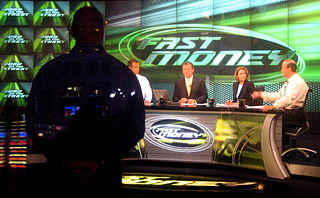A Quote by Sergey Brin
My vision when we started Google 15 years ago was that eventually you wouldn't have to have a search query at all. You'd just have information come to you as you needed it. And Google Glass is now, 15 years later, sort of the first form factor that I think can deliver that vision.
Related Quotes
I remember at the time - right before we started Feministing.com - doing a Google search for the term "young feminism" and the term "young feminist," and the first thing that came up was a page from the National Organization for Women that was about 10 or 15 years old. And it just struck me as so odd that there was all of this young feminist activism going on, but that it wasn't necessarily being represented online, that the first things in a Google search to come up were really, really old. I think to a certain degree we really filled a gap, and that's why we got such a large readership.
We know that Google Earth and Google Maps have had a tremendous impact on Google traffic, users, brand, adoption, and advertisers. We also know Google News, for example, which we don't monetize, has had a tremendous impact on searches and on query quality. We know those people search more. Because we've measured it.
When I was 15 years old, I read an article about Ivan Boesky, the well-known takeover trader - turned out years later it was all on inside information! But before that came to light, he was very successful, very flamboyant. And I thought, 'This is what I want to do.' So I'm 15 years old, I decide I'm going to Wall Street.
When I was 15 years old I read an article about Ivan Boesky, the well-known takeover trader - turned out years later it was all on inside information! But before that came to light he was very successful, very flamboyant. And I thought, "This is what I want to do". So I'm 15 years old, I decide I'm going to Wall Street.
Google Now is one of those products that to many users doesn't seem like a product at all. It is instead the experience one has when you use the Google Search application on your Android or iPhone device (it's consistently a top free app on the iTunes charts). You probably know it as Google search, but it's far, far more than that.
We have to have a vision of the world we want to make in 100 years. And maybe when we have that vision, when we convince enough people that that is a realistic vision, and that the opposite vision is basically that if we don't do something in this 100 years, a hundred years from now this world is gonna be so destroyed, so raped and ravished that we won't HAVE much of a world to save.
We really are living in an age of information overload. Google estimates that there are 300 exabytes (300 followed by 18 zeros) of human-made information in the world today. Only four years ago there were just 30 exabytes. We've created more information in the past few years than in all of human history before us.
In the Middle East, America has spent as of four weeks ago $6 trillion. Think of it. And, by the way, the Middle East is in what - I mean, it's not even close - it's in much worse shape than it was 15 years ago. If our Presidents would have gone to the beach for 15 years, we would be in much better shape than we are right now, that I can tell you.
Competitors argue that Google rigs its search algorithms to demote listings for competing search engines. Many of the allegations of demotion come generally from sites of pretty questionable quality, such as Nextag and Foundem. Some of Google's primary competitors in 'specialized search' clearly place well in search results - Amazon and Yelp.
































